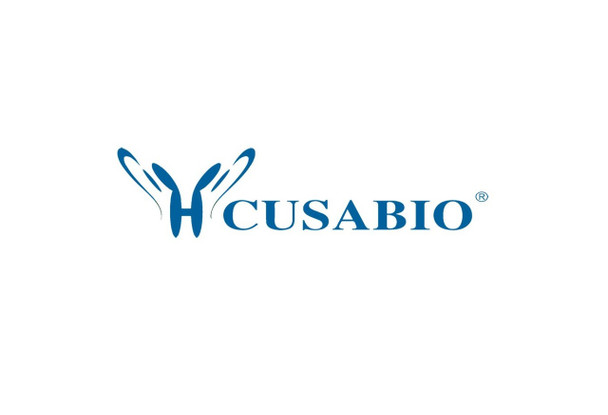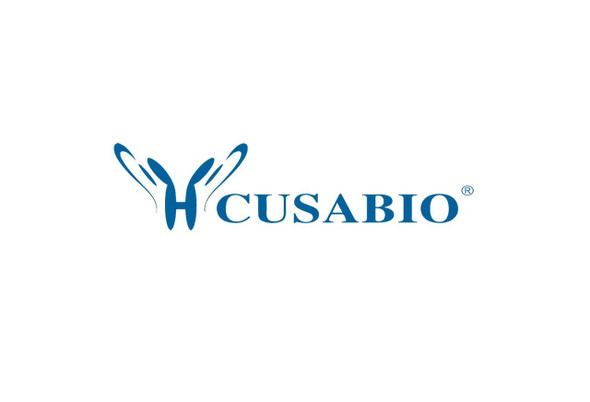Cusabio Active Proteins
Recombinant Human Tumor necrosis factor receptor superfamily member 11A protein (TNFRSF11A) (Active) | CSB-AP002321HU
- SKU:
- CSB-AP002321HU
- Availability:
- 5 to 10 Working Days
Description
Recombinant Human Tumor necrosis factor receptor superfamily member 11A protein (TNFRSF11A) (Active) | CSB-AP002321HU | Cusabio
Protein Description: Partial
Alternative Name (s) : Osteoclast differentiation factor receptor, Receptor activator of NF-KB, CD antigen CD265
Gene Names: TNFRSF11A,RANK
Research Areas: Cancer
Species: Homo sapiens (Human)
Source: E.Coli
Tag Info: Tag-Free
Expression Region: 29-202aa
Sequence Info: QIAPPCTSEK HYEHLGRCCN KCEPGKYMSS KCTTTSDSVC LPCGPDEYLD SWNEEDKCLL HKVCDTGKAL VAVVAGNSTT PRRCACTAGY HWSQDCECCR RNTECAPGLG AQHPLQLNKD TVCKPCLAGY FSDAFSSTDK CRPWTNCTFL GKRVEHHGTE KSDAVCSSSL PARK
Biological Activity: Fully biologically active when compared to standard. The ED50 as determined by its ability to inhibit sRANK Ligand induced nuclear factor kappa B (NFkappaB) in RAW 264.7 cells is less than 50 ng/ml, corresponding to a specific activity of > 2.0 × 104 IU/mg in the presence of 15 ng/ml of recombinant sRANK Ligand.
MW: 19.1 kDa
Purity: >98% as determined by SDS-PAGE and HPLC.
Endotoxin: Less than 1.0 EU/µg as determined by LAL method.
Relevance: Receptor for TNFSF11/RANKL/TRANCE/OPGL; essential for RANKL-mediated osteoclastogenesis. Involved in the regulation of interactions between T-cells and dendritic cells. {ECO:0000269|PubMed:9878548}.
PubMed ID: 9367155; 23664977; 9878548; 9774460; 15750601; 18669648; 10615125; 18606301
Notes: Repeated freezing and thawing is not recommended. Store working aliquots at 4℃ for up to one week.
Function: Receptor for TNFSF11/RANKL/TRANCE/OPGL; essential for RANKL-mediated osteoclastogenesis. Involved in the regulation of interactions between T-cells and dendritic cells.
Involvement in disease: Familial expansile osteolysis (FEO) ; Paget disease of bone 2, early-onset (PDB2) ; Osteopetrosis, autosomal recessive 7 (OPTB7)
Subcellular Location: Isoform 1: Cell membrane, Single-pass type I membrane protein, SUBCELLULAR LOCATION: Isoform RANK-e5a: Cell membrane, Single-pass type I membrane protein
Protein Families:
Tissue Specificity: Ubiquitous expression with high levels in skeletal muscle, thymus, liver, colon, small intestine and adrenal gland.
Paythway: NF-kappaBsignalingpathway
Form: Lyophilized powder
Buffer: Lyophilized from a 0.2 µm filtered 20 mM Tris-HCl, pH 8.0, 150mM NaCl
Reconstitution: We recommend that this vial be briefly centrifuged prior to opening to bring the contents to the bottom. Please reconstitute protein in deionized sterile water to a concentration of 0.1-1.0 mg/mL.We recommend to add 5-50% of glycerol (final concentration) and aliquot for long-term storage at -20℃/-80℃. Our default final concentration of glycerol is 50%. Customers could use it as reference.
Uniprot ID: Q9Y6Q6
Uniprot Entry Name: TNR11_HUMAN
HGNC Database Link: HGNC
UniGene Database Link: UniGene
KEGG Database Link: KEGG
STRING Database Link: STRING
OMIM Database Link: OMIM









